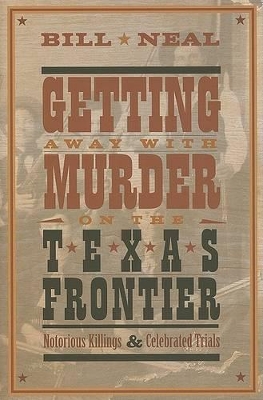In 1916, in the tiny West Texas town of Benjamin, a gunman slips into a courtroom and murders the defendant. In 1912, in Fort Worths finest hotel, a young man kills an old gentleman in cold blood in the middle of the lobby. The verdict in both of these murderers trials? Not guilty. The explanation? This is Texas. Laws passed by politicians in far-off Austin meant little to Westerners living on the Texas frontier. Sagebrush justice relied less on written statutes than on common sense, grass-roots fairness, and vague notions of folk law drawn from the Old Souths Victorian code of chivalry and honor. In this very different time and place, a murderer might go free based on the following reasoning: The son-of-a-gun is guilty all right, but we must turn him loose. He owes me for a pair of boots, and if we convict him Ill never get my money. Inexperienced prosecutors, a lack of modern crime-detection methods, unavailability of witnesses, an acceptance of violence in society, and a laissez-faire attitude toward trial tactics all conspired to make guilty verdicts a rarity. In this first volume of a planned trilogy, Neal presents the evidence that shows how easy some folks found it to evade justice in the frontier West.
- ISBN10 0896725790
- ISBN13 9780896725799
- Publish Date 15 December 2006
- Publish Status Active
- Imprint Texas Tech University Press
- Edition Annotated edition
- Format Hardcover
- Pages 308
- Language English
